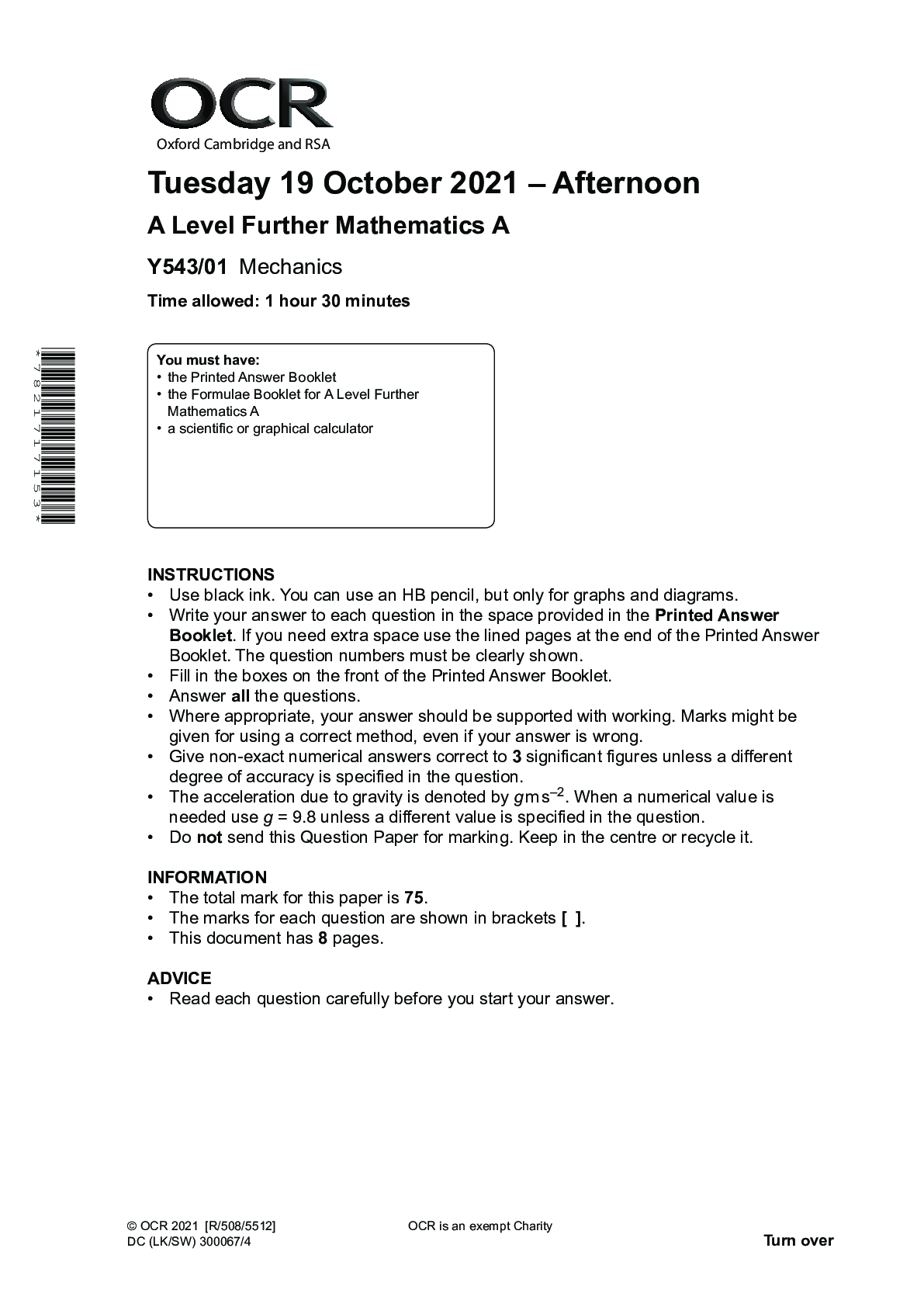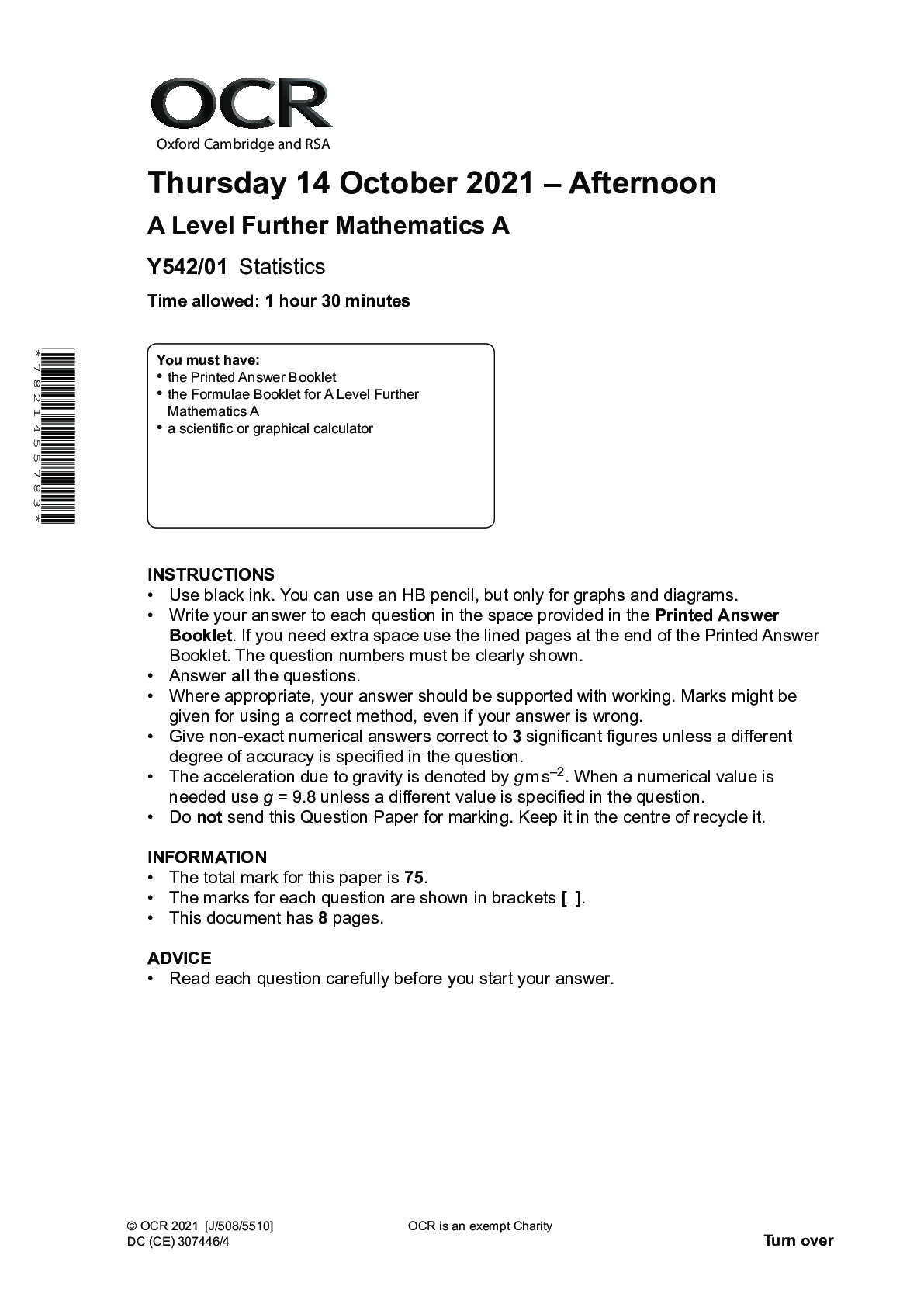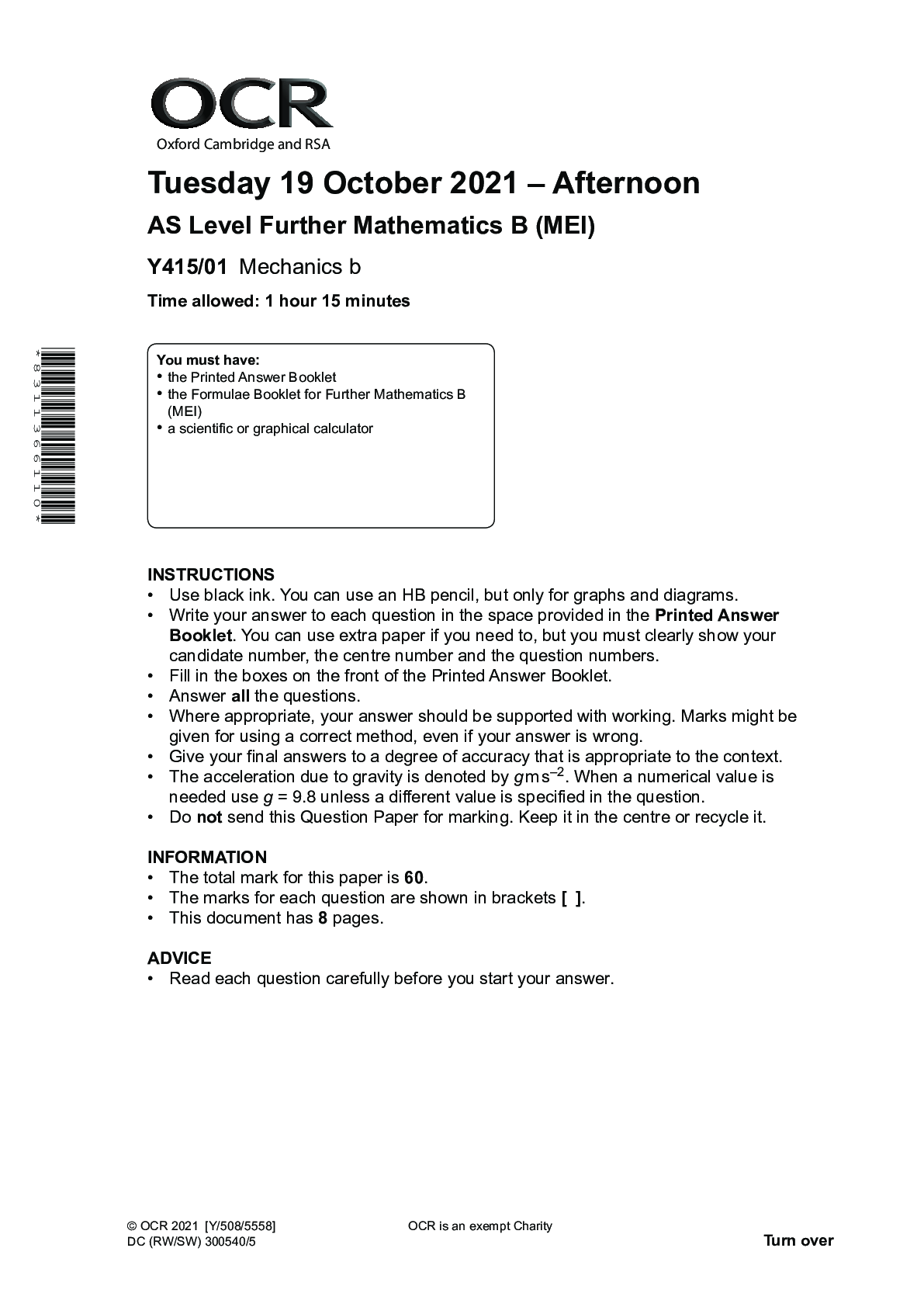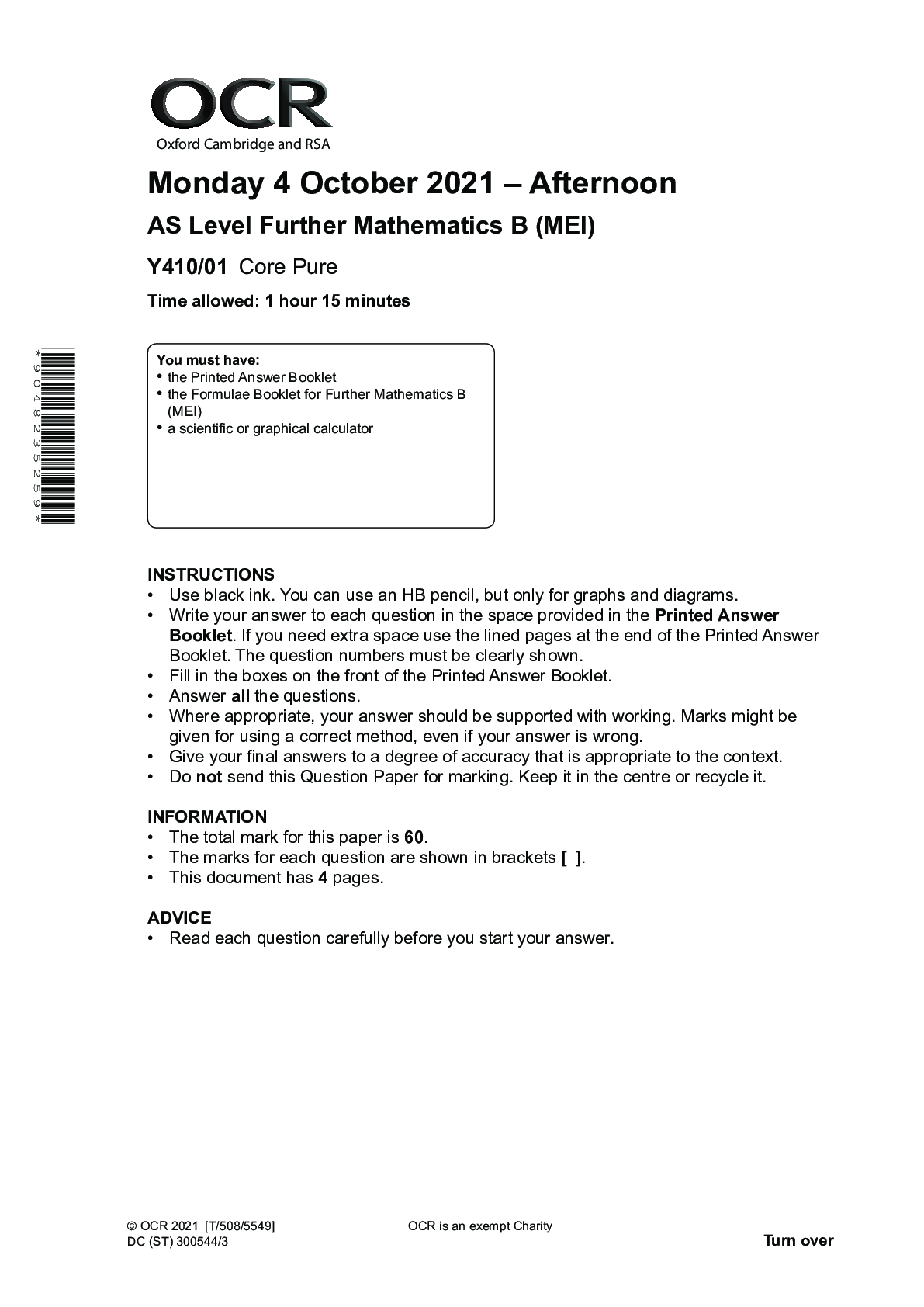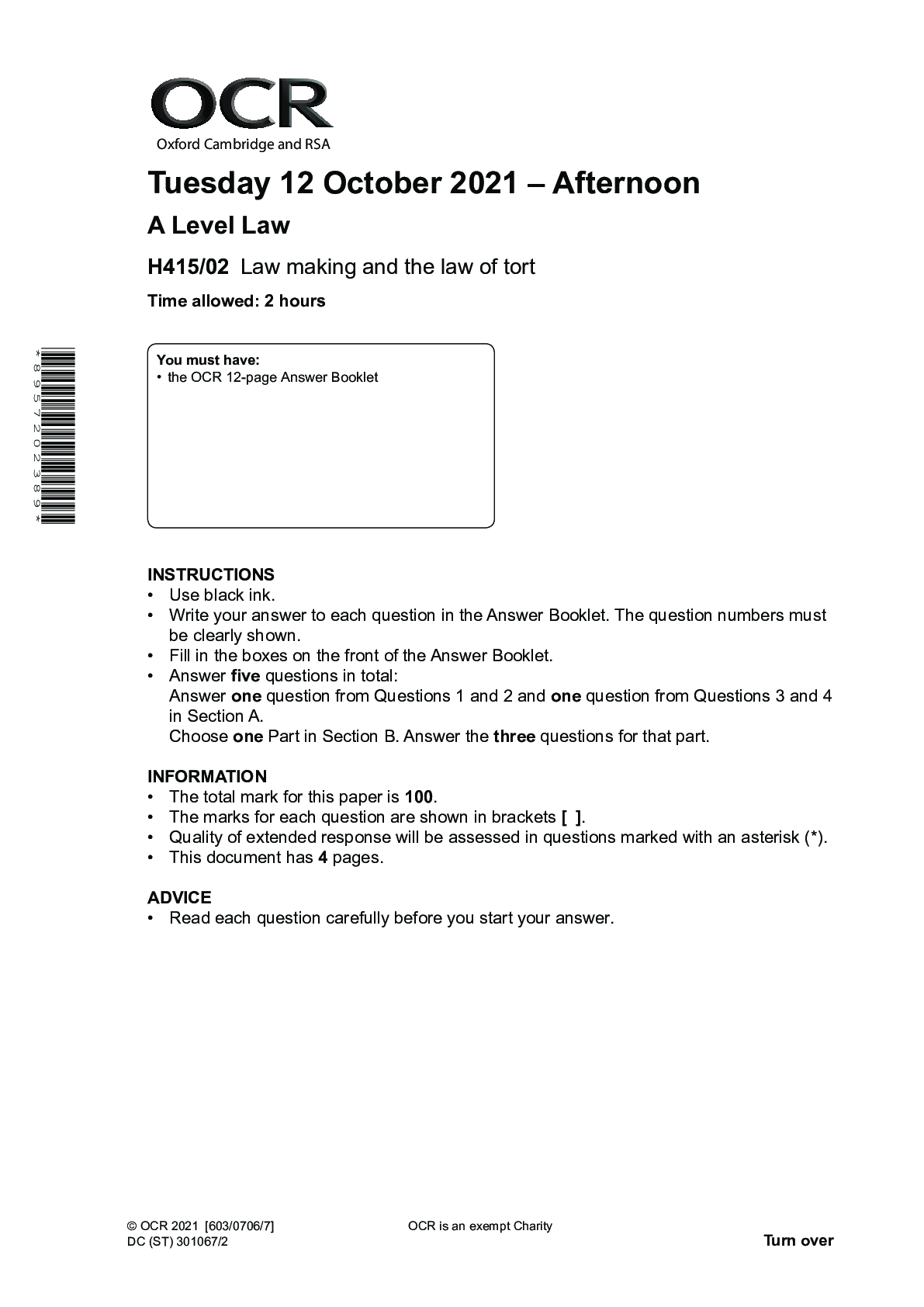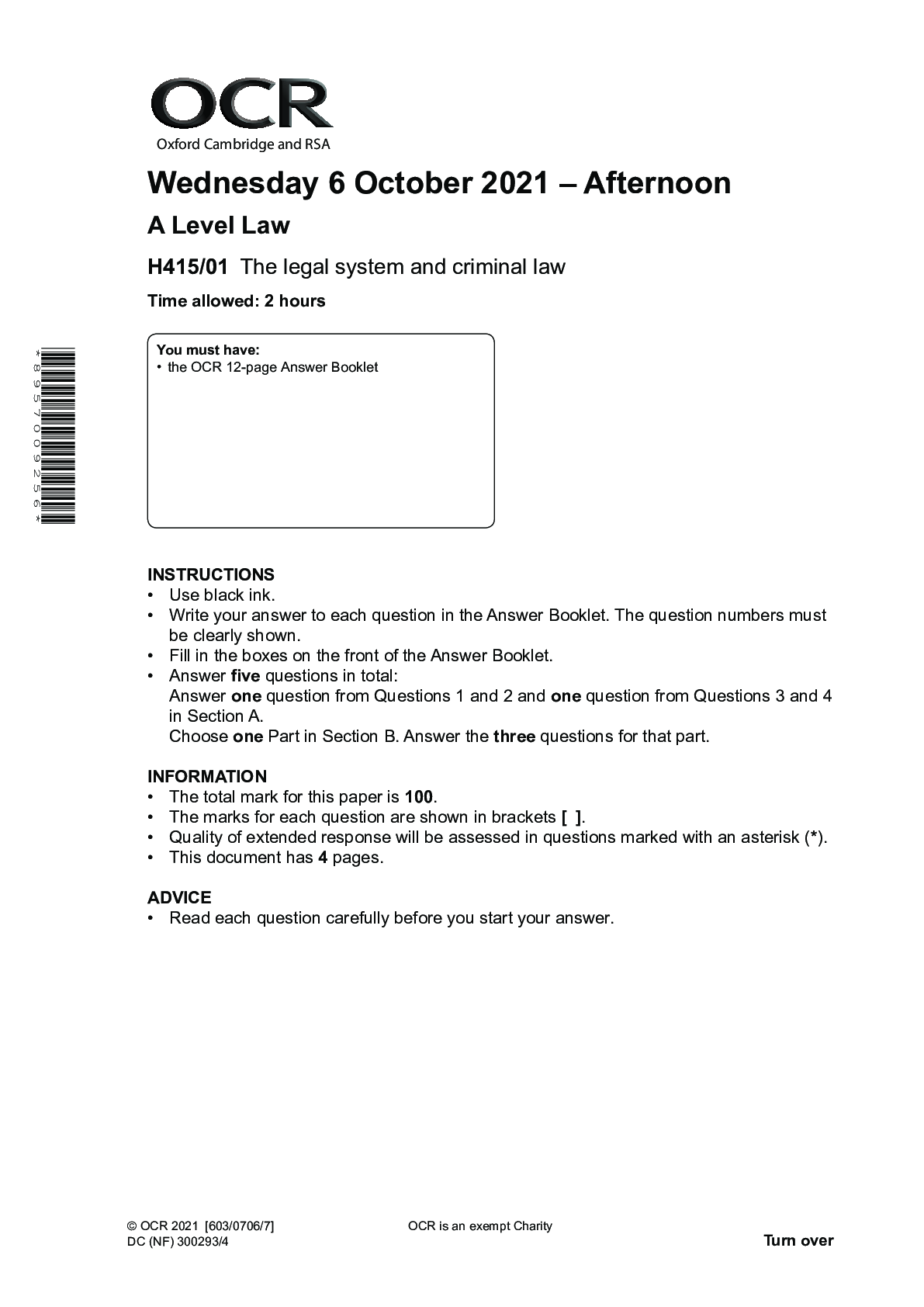History > As Level Question Papers > Wednesday 6 October 2021 – Morning A Level History A Y317/01 China and its Rulers 1839–1989. (All)
Wednesday 6 October 2021 – Morning A Level History A Y317/01 China and its Rulers 1839–1989.
Document Content and Description Below
SECTION A Read the two passages and then answer Question 1. 1 Evaluate the interpretations in both of the two passages and explain which you think is more convincing as an explanation of the conseq... uences for China of the First Opium War. [30] Passage A Unfortunately the Daoguang Emperor entrusted the mission of supressing the opium trade to Lin Zexu [Commissioner Lin], who was only effective in Guangdong and was not able to obstruct British warships or naval vessels sailing north along the coast to threaten the northern gates to the Empire. The Emperor was alarmed and confused, made a scapegoat of Lin, and was forced to open five trading ports in exchange for preserving the stability of the Empire as a whole. The effect of this does not need reiterating; from then on the Great Qing Empire became the helpless victim of the Western powers; it was like meat on a chopping block. Nobody expected that in the Sino-British Opium War (1840–1842) the Manchu Qing dynasty that ruled China would be defeated by British warships that forced their way through the gates. There was then no alternative but to conclude an unequal treaty, bringing to the Celestial Empire deep shame and humiliation such that it had not known for two hundred years. This is the point at which the history of the Manchu Qing was cut in half. The period before the twentieth year of Daoguang (1840) was assigned to ‘ancient history’ and the 70 years of the late Qing that followed it belonged to the beginning of ‘modern history’. From then, through the Second Opium War, right through to the collapse of the Qing in 1911, the Manchu Qing suffered constant civil strife and external aggression, ceding of territory, being forced to pay reparations, unprecedented humiliation, and a foreign trade surplus. The reason for the accumulated weaknesses of late Qing China is clear. Adapted from: Zhu Weizheng, Rereading Modern Chinese History, published in 2015. Passage B Nationalist Chinese writers and even some Western historians have often stressed as the prime cause of Chinese decline the humiliations heaped on China by the European powers and Japan. The starting point for this is usually taken to be the so-called Opium War with Britain in 1839–42. The war exposed the technological backwardness of China. The result was the humiliating Treaty of Nanjing. In 1844 the Americans and British extracted new treaties extending their trading rights. Shanghai became a symbol of the new relationship with a rapid expansion of trade and a thriving foreign community of merchants. Here they created, at the centre of a Chinese community, a part of England. However, even without foreign pressure, China faced growing and probably insoluble internal problems. At the root of these lay the population explosion, an economic crisis linked to the opium trade and mounting corruption among officials, which meant the central government increasingly failed to extract the taxes it needed and was entitled to. This was to be the most serious weakness in resisting the challenges of foreigners. It was these internal challenges of the nineteenth century that inevitably produced the questioning, within China, of China as it was, leading to both reform movements and rebellions [Show More]
Last updated: 2 years ago
Preview 1 out of 4 pages

Buy this document to get the full access instantly
Instant Download Access after purchase
Buy NowInstant download
We Accept:

Also available in bundle (1)

OCR HISTORY BUNDLE.. All question papers and answers. Graded A. Deeply Discounted.
OCR HISTORY BUNDLE.. All question papers and marking schemes.. Graded A. Deeply Discounted.
By SupremeDocs 3 years ago
$50
41
Reviews( 0 )
$12.00
Can't find what you want? Try our AI powered Search
Document information
Connected school, study & course
About the document
Uploaded On
Jun 28, 2022
Number of pages
4
Written in
Additional information
This document has been written for:
Uploaded
Jun 28, 2022
Downloads
0
Views
143


